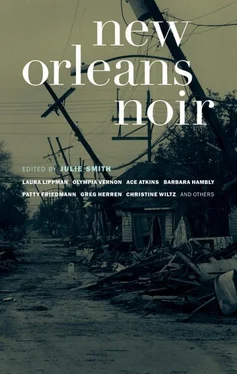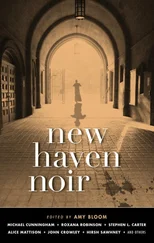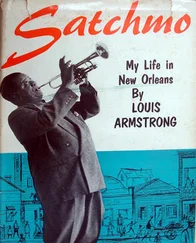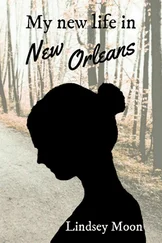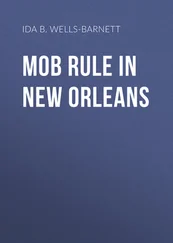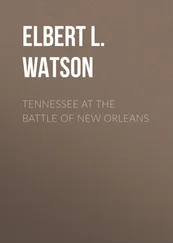For a long time now, since the morning heat started shining hard off the top of the downtown buildings, he’d been watching the man with the gun.
The man was white and wearing green, a big plug of tobacco in his left cheek. To the child, it seemed his eyes were superhuman, taking in everything in their thick mirrored lenses and occasionally shouting to a group of shackled men who sat and slept.
He kept the gun tight in both hands and would walk from the beginning of the chain of men — bearded and smelling of rotten eggs and garbage — to the end, his boots making hollow sounds on the overpass. His steps seemed like a drum over the murmur of men and families who’d found refuge on the high ground.
By early afternoon, the child stood close to the railing, trying to catch the breeze that would sometimes come across his face, his eyes lazily opening and closing, watching the waves break and shift on top of the roadway and on the parched roofs of partially sunk buildings and shotgun houses.
He felt his fingers slip from the sweaty hand of his mother and he wandered, walking and swaying, toward the man with the gun.
The boy tugged at the rough material on his leg and the man stared down at him, his silver glass eyes shining an image of a grinning child back at him.
He looked at the twin images of himself and said: “Mister, when you gonna fix our city?”
Jack Estay woke at 5 a.m. to the sound of the big yellow locomotive’s engines chugging away and keeping the entire station juiced with power. He took the twelve-gauge from his lap, stood from where he’d fallen asleep in a chair the night before, and washed himself in the lavatory.
At 5:15 he walked five men caught looting a Vietnamese restaurant (they’d been found eating dried shrimp and guzzling bottles of 33 beer) down the endless train platform and into the holding cells fashioned with chain link, metal bars, and concertina wire. In each of the sixteen cells there was one portable toilet.
Orleans Parish Prison sat filled with water, so it was the best they could do.
As Jack locked up and walked the line back to the old Amtrak station, men and women hollered and yelled. A homeless man on the way tried to piss on him, but his short quick stream stopped shy of Jack’s leg.
Jack looked at the man and spat some brown juice at the base of the cell.
Another guard called out to him about the next row of cells. “That one has AIDS,” the thick-bodied woman said. “Be careful.”
Most of the prisoners were looters, some stole cars, some broke into mansions, and about ten had tried to kill folks. Mainly taking shots at cops who were trying to rescue people from their swamped neighborhoods.
“Hey, Audie Murphy!” yelled a man with a long gray beard stained yellow. “Go suck a turd.”
Jack walked into the wide expanse of the train station, the newspaper racks selling a copy of USA Today from August 26, a picture of Martha Stewart on the cover with a big shit-eating grin on her face.
Welcome to Angola South read a cardboard sign by the door.
Jack got a break just before sundown.
He used his cell phone to call his father back on Grand Isle, a man who’d been left alone to pick through the wreckage of a shrimp company he’d owned since ’64, surviving even Hurricane Betsy. His dad told him that every boat they owned, the refrigerated warehouse, and their stilt house had all washed out into the Gulf.
“Say hello to Mama for me,” Jack said before ending the call and heading out in his truck along the river.
Jack rode through the city and drank a cold Budweiser, a cooler in the back of his Chevy loaded down with ice brought in by the Indiana National Guard. The radio carried nothing but news, so he shut it off and just drove slow out Canal Street past the carnival of TV trucks and reporters camped out on the neutral ground. At one point, he slowed, noticing a leg sticking out from under a tarp.
But raising his sunglasses, he saw it was only a mannequin. He glimpsed a couple of cameramen in the shadows laughing and pointing.
He drove on.
Rampart at Canal was the foot of the swamp, water all the way to Lake Pontchartrain. He turned around and crossed back through the Quarter, found higher ground and crossed Rampart further downriver, ending up at the corner of St. Louis and Tremé, right by the old housing projects, St. Louis Cemetery, and the looted-out Winn-Dixie. All along Tremé, tree branches and drowned cars filled the road. Birds and loose trash skittered in the warm breeze.
Jack polished off the Bud and pulled a plug of tobacco from his pouch. Sitting on his hood, he brushed off the brown pieces of Redman from his mustache and spit into the swampy water covering his truck tires.
The warm air was calm. The city completely still, with huge clouds above the Central Business District. A skinny, mangy dog wandered past him.
An old black man on a bicycle peddled through the foot-deep water and waved.
The only sound came from helicopters loaded down with machine guns passing over the Mississippi and the Lower Ninth Ward looking for bodies and looters. An old-fashioned Army Jeep passed, driving in reverse with a young kid in the passenger seat wearing an NOPD shirt and Chinese hat. He eyed down his rifle, scoped a bird on the cracked cemetery wall, and then, satisfied he had the shot, dropped the gun at his side.
Jack spit and smiled.
He wasn’t even back at the train station for his next shift when he saw the smoke curling and twisting like a mythical snake. Jack followed the smoke and called in on his handheld radio, arriving before the firetrucks at a block of row houses at Oretha Castle Haley Boulevard and Jackson Avenue. Two of them burned, crackling and popping as only ancient wood can. Hard and buckling, turning to coal-black smoke.
Six firetrucks. And then seven.
The sun set through leafless oaks, the light orange and slatted and broken through black smoke. A helicopter passed overhead and dropped a huge bucket of water on the dying buildings. The falling water stirred up dead leaves and stale wind and fell with a whoosh.
Dried pieces of debris and smoke blocked out the sun.
“So you were scared?” Jack asked the pretty girl from Indiana.
“Hell yes, I was scared,” she said.
It was the next day at sunset and they talked at an old convent in the Bywater near a statue of the Virgin Mary.
“They dropped us off in the middle of the night,” she said, smoking. Her hand shook a bit. “The water was up past the transport’s tires and you couldn’t see two feet in front of your face. No moon. Nothing.”
The girl was pretty. Blond and muscular with brown eyes. She wore camouflage but sat like a girl, on her butt with her knees pulled up to her chin. Jack met her when she’d delivered the ice.
He turned away when she exhaled.
“You want one?”
“I don’t smoke.”
She nodded. “So they dropped us off on the high ground,” she said. “When was that, a few weeks ago?”
“Last week.”
“Last week,” she repeated, thinking. “And they dropped us off, like I said. On the high ground. Well, we didn’t have orders or anything. We just sat there.”
“All night.”
“All night,” she said. “We could hear gunshots and people yelling. Families passing us on boats and little pool floats... So anyway, I finally fall asleep and I hear something at the edge of sleep. You know how that can go? Kind of a dream but you’re awake. And it’s a trudging sound through the water and this heavy breathing. I couldn’t see anything. It was so dark I wasn’t sure if it was just in my head.”
“What was it?”
“You’ll laugh at what I thought it was.”
“What did you think it was?”
Читать дальше
